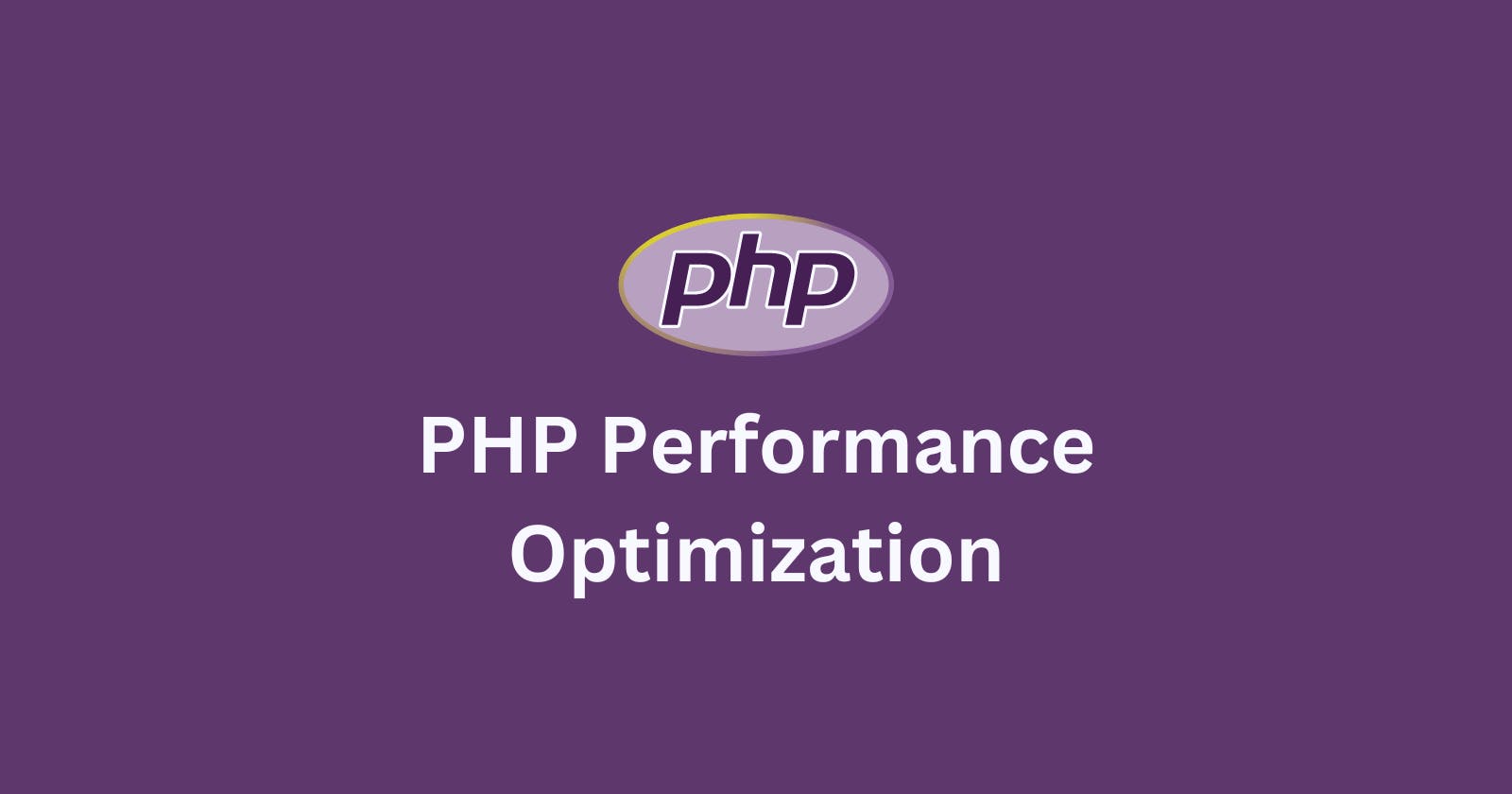PHP Performance Optimization: Boosting Your Application's Speed and Efficiency
Introduction: When developing PHP applications, optimizing performance is crucial for delivering a fast and responsive user experience. In this blog post, we will explore various techniques and strategies for optimizing PHP application performance. We'll cover caching strategies, code optimization, and database query optimization, providing practical tips and best practices along the way.
- Caching Strategies: Caching is a powerful technique to reduce server load and speed up PHP applications. Here are some caching strategies you can employ:
Opcode Caching: Enable an opcode cache like APCu or OPcache to cache compiled PHP code, eliminating the need for recompilation on each request.
Page Caching: Implement page caching to store the rendered HTML output of frequently accessed pages and serve them directly from the cache, bypassing PHP execution.
Data Caching: Utilize a caching mechanism (e.g., Memcached or Redis) to store frequently accessed data, such as database query results or API responses, reducing the need for redundant computations.
- Code Optimization: Optimizing your PHP code can have a significant impact on performance. Consider the following optimization techniques:
Minimize File Includes: Reduce the number of file includes and imports in your code, as each file inclusion comes with a performance overhead. Combine multiple files when possible.
Optimize Loops: Analyze loops and ensure they are as efficient as possible. Avoid unnecessary iterations, utilize appropriate loop constructs (e.g., foreach instead of for), and break out of loops early when conditions are met.
Optimize String Manipulation: Use string functions like str_replace(), substr(), and strpos() efficiently. Avoid excessive concatenation or string manipulation inside loops, as it can be resource-intensive.
- Database Query Optimization: Database queries are often a bottleneck in PHP applications. To optimize database performance, consider these best practices:
Indexing: Properly index your database tables based on the query patterns. Indexing can significantly improve query execution time, especially for frequently accessed columns.
Query Optimization: Analyze slow-performing queries using tools like EXPLAIN in MySQL to identify bottlenecks. Optimize queries by adding appropriate JOINs, WHERE clauses, and avoiding unnecessary subqueries.
Caching Query Results: Implement query result caching using a data caching mechanism. Cache the results of expensive or frequently executed queries to reduce the load on the database server.
- Database Connection Management: Efficiently managing database connections can also contribute to performance optimization:
Connection Pooling: Implement a connection pooling mechanism to reuse established database connections instead of creating a new connection for each request. This reduces the overhead of connection establishment.
Persistent Connections: Consider using persistent database connections to avoid the overhead of reconnecting to the database on each request. However, be cautious with long-lived connections as they can lead to resource exhaustion.
Connection Optimization: Fine-tune database connection settings, such as the maximum number of connections, timeout values, and buffer sizes, to match the specific requirements of your application.
Conclusion: Optimizing PHP application performance is crucial for delivering a fast and efficient user experience. By implementing caching strategies, optimizing code, and fine-tuning database queries, you can significantly enhance the performance of your PHP applications. Remember to profile your application to identify performance bottlenecks and continually monitor and fine-tune your optimizations to ensure ongoing improvement. With these techniques and best practices in mind, you can create high-performing PHP applications that delight users and deliver exceptional performance.
